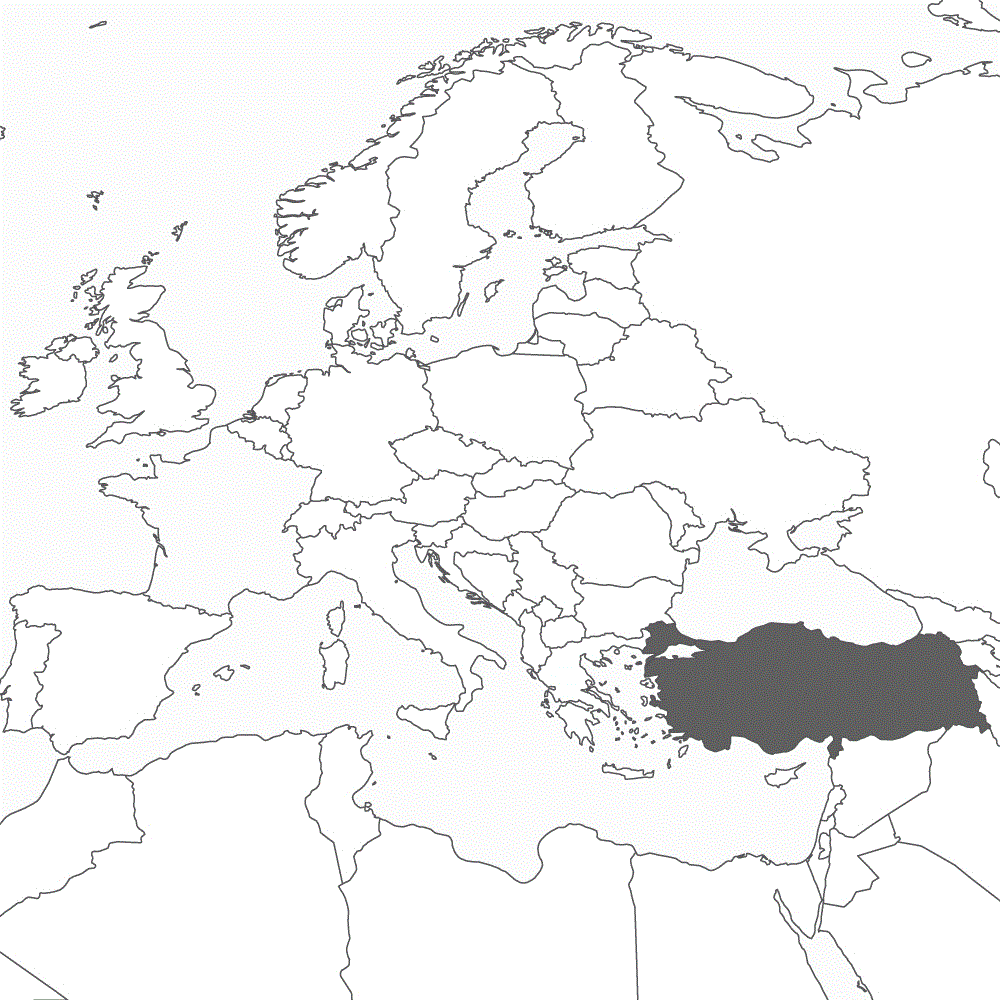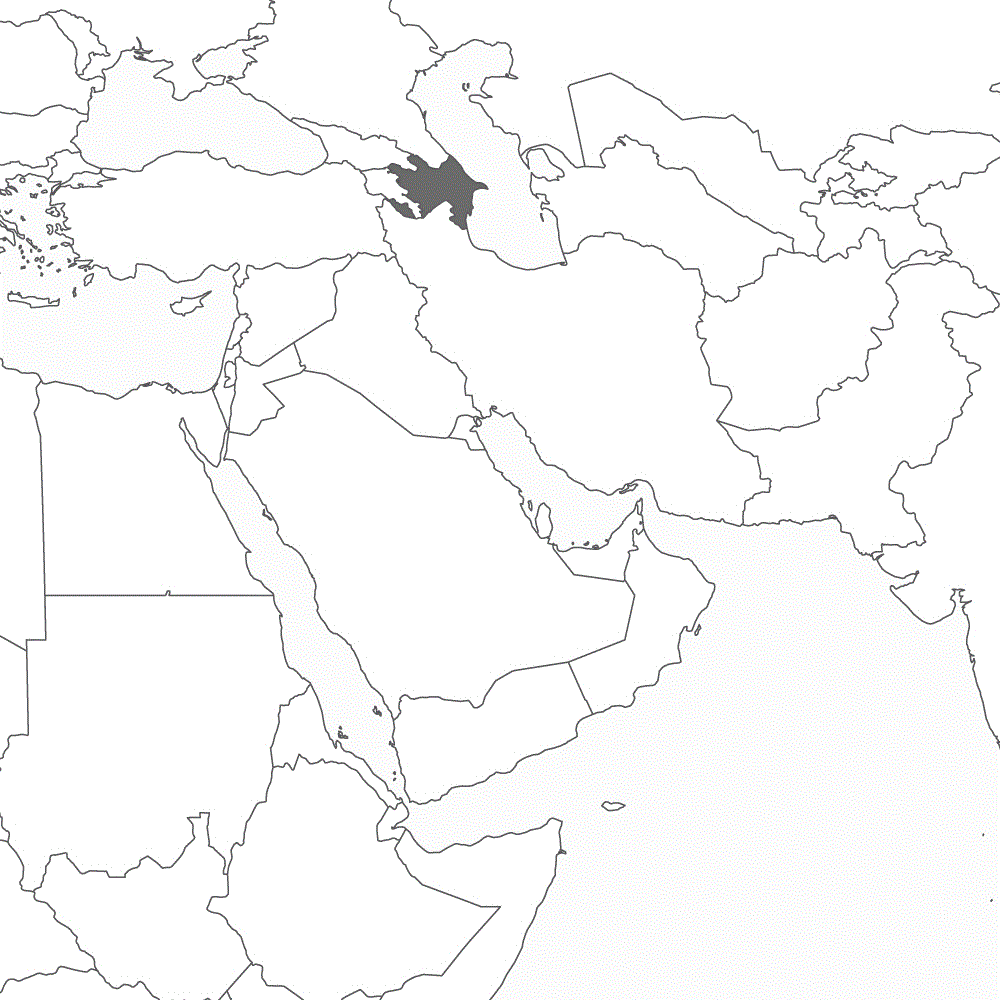‘Unpredictable, but indispensable’
Germany reacts to the arrest of opposition leader İmamoğlu in Turkey with harmless appeals. Berlin needs Ankara’s cooperation to keep out refugees and secure strategic interests. Turkey is now a powerful player.
BERLIN/ANKARA (own report) - German politicians are reacting to the arrest of Turkish opposition politician Ekrem İmamoğlu and many of his supporters with empty words. Their inconsequential appeals are a face-saving exercise. İmamoğlu, the popular mayor of Istanbul and a potentially strong candidate for president in the next election, was arrested on Wednesday. The charges appear to be flimsy. Many of his supporters have also been arrested, while a company he owns has been expropriated. İmamoğlu’s CHP party speaks of a “an attempted coup against the potentially the next president.” German Chancellor Olaf Scholz declared that the move “weights on relations between Europe and Turkey”. No practical consequences can be expected. For Germany and the EU are dependent on cooperation with Ankara when it comes to preventing refugees from moving on to Europe, not to mention European efforts to bring Ankara into an anti-Russian alliance. Brussels is also keen to engage with Turkey as a trade and energy hub. There are, in any case, hardly any effective instruments for exerting political pressure on Turkey. On the contrary, it is Ankara that has grown in strength over recent years and secured options with alternative cooperation partners. As a leading Berlin foreign policy journal put it, Turkey is an “unpredictable, indispensable” partner. Read more
Elections in Turkey
Experts dash German hopes for a pro-Western shift in Turkey’s foreign policy resulting from the opposition’s potential victory in the presidential elections.
BERLIN/ANKARA (Own report) – Germany and other Western powers cannot hope for an alignment of Turkey’s foreign policy with Western demands, even if the Turkish opposition wins the presidential elections on Sunday, according to assessments made by observers and experts, as well as statements by leading representatives of the opposition associated with Kemal Kılıçdaroğlu. Thus, Berlin and Brussels will be confronted with Turkish claims to natural gas reserves in the eastern Mediterranean also in the future, and – as Kılıçdaroğlu has recently threatened – with Ankara’s efforts to “take back” Greek Aegean islands. Germany, and the West as a whole, will have to live with the fact that, even after a potential change of personnel in the presidency, Turkey will seek a compromise with Syria’s President Bashar al-Assad and continue its cooperation with Russia. Experts ascribe this not only to Turkey’s import and export structure, but also to its foreign policy tradition of a certain non-alignment. This is evident today in Ankara’s persistence not only in cooperating with the West but also in working with Russia. Read more
The Dwindling Eurocentric Perspective
The crisis over western diplomats' interference in Turkey's domestic affairs has been settled. Ankara's orientation on the EU is waning due to the EU's decline.
BERLIN/ANKARA (Own report) - The Turkish government stepped back from a threat to expel ten Western ambassadors, including the one from Germany. As President Recep Tayyip Erdoğan noted, the ambassadors have vowed to comply with the Vienna Convention on Diplomatic Relations, and to "cease interference in Turkey's domestic affairs." Earlier, an appeal for the immediate release the jailed businessman and foundation activist Osman Kavala by the ten ambassadors had sparked a diplomatic crisis. Kavala has obviously been imprisoned on political grounds. Thus, his case offers western states an occasion to politically intervene with Ankara - in other words, to do something, they, themselves, would not tolerate, as, for example, in the case of jailed WikiLeaks founder Julian Assange. Germany, in particular, is striving to mitigate conflicts with Turkey - for strategic reasons. Experts, however, expect disputes with Ankara to continue because it clearly perceives the West's decline and, has begun to reorient itself toward Asia. Read more
Naval Powers in the Mediterranean
Ankara protests German forces' boarding of Turkish vessel. Italian admiral: The West has lost its pre-eminence in the Mediterranean.
BERLIN/ANKARA (Own report) - The Western powers, including Germany and the EU, are in danger of losing their pre-eminence in the Mediterranean, Admiral Luigi Binelli Mantelli, former Chief of the Defense Staff of Italy declared. According to Binelli Mantelii, Russia has become "the pre-eminent naval power in the Mediterranean," and Turkey, in particular, is rapidly gaining influence. Together, Moscow and Ankara are in the process of superseding the "traditional" Western peacekeeping powers. The statement is being published at a time when Turkey has snubbed the navy of a leading EU power, for the second time. During the night from Sunday to Monday, a German boarding team seeking to inspect a Turkish cargo vessel en route to Libya, suspecting a possible breach of the UN arms embargo, had to abandon its inspection due to Ankara's intervention. Already in June, Turkey had averted a similar French naval operation. Unaccustomed to defiance, the EU finds itself powerless to halt the rise of its Turkish rival. Read more
Neighborhood in Flames (II)
EU with no influence on the war over Nagorno-Karabakh. Cooperation with Russia hardly possible following recent decisions on sanctions.
BERLIN/BRUSSELS (Own report) - With clumsy pleas, the EU is urging Armenia and Azerbaijan to agree to a ceasefire. The hostilities over Nagorno-Karabakh must be ended immediately, was the call sent out by the EU foreign ministers at their meeting yesterday, albeit without any mention of concrete measures. According to German experts in foreign policy, Germany's lack of influence on the parties to the conflict must be compensated for through coordinated EU activities and agreements with Russia. In a similar situation earlier this year, Berlin had been able to make progress in its efforts to reach a ceasefire in Libya with Moscow's help. This option is nowhere in sight in the current case. On Franco-German insistence, EU foreign ministers agreed to impose sanctions on Russia yesterday. Experts estimate that now, Moscow will no longer "expect anything from Europe," and feels "no longer obliged to take its opinion or interests into account." The EU is unable to exert influence on Turkey, which supports Azerbaijan: Ankara is playing off Berlin and Paris against one another. Read more
Dispute Over Policy Towards Turkey
EU remains divided over Turkey's aggressive foreign policy ("Neo-Ottomanism"/"Blue Homeland").
BERLIN/PARIS/ANKARA (Own report) - A fierce controversy within the EU on how to deal with Turkey overshadows the current EU foreign ministers meeting in Berlin - a controversy caused by the ongoing maneuvers in the eastern Mediterranean by Turkish naval forces, on the one hand, and by Greek naval forces on the other. The combat drills were provoked by Turkey's search for oil and gas in waters also claimed by Greece. Ankara's foreign policy, which has become increasingly aggressive over the past few years - now even including a maritime component, known as the "Blue Homeland ("Mavi Vatan") concept - has been fueling this power struggle. The German government seeks to continue its close cooperation with Turkey, also to ward off refugees, and is therefore looking for a settlement between Athens and Ankara. France, however, pursuing different interests in the Mediterranean, is siding with Greece. The implementation of Germany's objective of harmonizing EU policy toward Turkey, is nowhere in sight. Read more
Rearmament despite Dissentions
NATO Increases Operational Readiness and Targets China
BERLIN/BRUSSELS (Own report) - In spite of fierce internal conflicts, NATO is enhancing its operational readiness, is preparing its next expansion and is setting its sights on China as a new "challenge." These are the main results of the war alliance's anniversary summit, which ended in London yesterday, with the participation of the heads of states and governments of the member countries. As early as next year, NATO will be able deploy 30 army, air force and naval units in a war within a 30 day maximum. At the London summit, North Macedonia, which is about to join the Alliance, was represented for the first time. In the future, NATO will extensively concern itself with China, however not exclusively confrontational, as Washington would have wanted. The conflict with Turkey did not escalate, even though the dissentions between Ankara and various other allied states, by no means, had been resolved. In fact, the Turkish government has implicitly been given a blank check for its heavily criticized activities in the occupation of Northern Syria. Read more
BERLIN/KIEV/ANKARA (Own report) - The German government is offering to serve as mediator in the conflict over the Sea of Azov, while demands are being made that ports be closed to Russian ships. Chancellor Angela Merkel announced on the sidelines of the G20 summit last weekend that Russian President Vladimir Putin "had approvingly received" her plea for negotiations between Russia, Ukraine Germany and France ("Normandy Format") to settle the conflict. However, Berlin's advantageous mediator role is being undermined by US measures - such as providing arms to Ukraine - and by Turkey. Last week, Turkish President Recep Tayyip Erdoğan had also offered to serve as mediator between Moscow and Kiev, based on the good relations Turkey has with both Russia and Ukraine. While the Ukrainian president reiterated his call for NATO deploying warships to the Sea of Azov, Secretary-General of Germany's Christian Democratic Party, Annegret Kramp-Karrenbauer, suggested barring Russian vessels sailing from the Crimea region from entering EU ports. Read more
BERLIN/ANKARA (Own report) - Turkish President Recep Tayyig Erdoğan's arrival in Berlin on a state visit amid media reports of arms cooperation with his country and of state-sponsored denunciation, using a smartphone app of those - also in Germany - critical of his government. Erdoğan will be received with all protocolary state honors, since the German government wants to strengthen its ties to Ankara at all costs. There is a growing risk that Ankara will turn its back on the West. Germany seeks to strengthen these ties because of Turkey's contribution to warding off refugees and particularly for geostrategic motives. Turkey is regarded as the indispensable isthmus to Germany gaining the much-coveted influence in Central Asia and the Middle East. Ankara is also facilitating the participation of Berlin in achieving an alignment in Syria, together with Moscow - but with the exclusion of Washington. Expansion of German-Turkish cooperation involves contracts in the billions for German companies and German participation in the development of Turkey's own arms industry. Read more
GERMAN-FOREIGN-POLICY.com
Information on German Foreign Policy: News + Interviews + Analyses + Background


